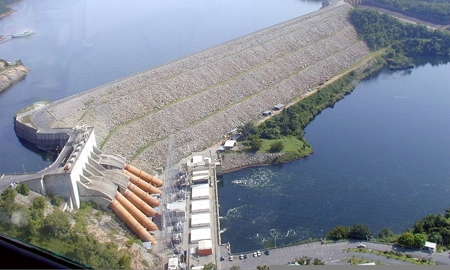
Over the past decade, demand for electricity in Ghana has been rising year-on-year due to sustained economic growth, greater urbanisation and increasing electrification of rural areas. In 1990, only 15 per cent of the population had access to electricity. Currently around 65 per cent of the population has an electrical supply and the government wants to increase this to 80 per cent by 2015, with universal access by 2020. Last year, 406 communities were connected to the national grid and the government has plans to extend the electricity supply to another 2,200 communities across the country in the near future. In addition, it also aims to raise the country’s installed power generation capacity from approximately 2,000MW to 5,000MW by 2015, with the eventual goal of turning Ghana into a net energy exporter and the power hub of West Africa.
According to Deputy Minister of Energy Inusah Fuseini, of the $1.7 billion needed to meet the country’s quest for universal electricity access, the government has received $966.55 million from bilateral and multilateral institutions. “There was a shortfall of $729 million, for which reason support from the Millennium Challenge Account Compact Two (MCA II) would be helpful,” he said during last December’s MCA II summit. In response, Deputy Vice-President, West Africa, at the Millennium Challenge Corporation (MCC) Jonathan Bloom gave the assurance that the MCC would collaborate with Ghana to improve power generation and supply in the country.
Ghana currently needs a daily supply of 1,600MW of power for both domestic and industrial use. From 1967 to 2010, electricity supply increased between 4 and 5 per cent each year. However, this has recently risen to between 10 and 11 per cent, and demand is expected to go up further as oil and gas production gathers momentum. This effectively means at least 200MW needs to be added to Ghana’s generation capacity each year.
“The energy sector has to be ahead of the game in the sense that it should be ahead of demand,” says Charles Darku, CEO of the Ghana Grid Company, GRIDCo. “There is a growing interest in Ghana, which can be seen in the increasing levels of investment and development. With oil and gas coming on stream there is going to be additional investment, so we have to be ahead in terms of the infrastructure we have and the supply.”
Established in 2006, GRIDCo was created to promote competition in Ghana’s wholesale power sector by providing transparent, non-discriminatory and open access to the transmission grid for all participants, with a particular focus on power generating companies and bulk consumers. The main customers for its electricity transmission services include the Electricity Company of Ghana (ECG), Northern Electricity Department (NED) and the nation’s mines.
“We have worked hard to get ourselves ready to operate the market and our current target is to move away from a rigid, vertically-integrated industry to one where market forces start to come into play,” says Mr Darku. “ We are doing it step-by-step, firstly so that we get it right and design it to suit our needs, but also more importantly to ensure we are going to send the right signals to potential developers and IPPs (independent power producers) that the market is growing and that rules are being developed in an open and transparent manner. I would say that private developers building new power plants are the pinnacle of the transformation in the sector.”
Hydroelectricity is the primary source of Ghana’s power and the Volta River Authority (VRA) holds the monopoly on its generation. The VRA mostly distributes electricity in the northern part of the country, while the Electricity Company of Ghana (ECG) distributes electricity in the south. Two hydroelectric dams at Akosombo and Kpong generate 1,180MW, and a third, 400MW dam is under construction at Bui. Another 21 potential sites have been identified, with a total capacity of 840MW, but are yet to be developed.
“Any investor is naturally worried about energy supply quality. However, I can assure you that we have the best in sub-Saharan Africa,” says Mr Darku. “We have some of the best skills sets amongst our people. There is a good range of artisans, technicians and engineers who are well trained and can offer investors labour capital. Infrastructure is reasonably developed, relative to the sub-region, and power supply is far more reliable than in other parts of Africa. We are certainly closer to Europe than Angola for instance, or even Nigeria. There is a one-hour time difference with central Europe. Working hours can therefore be synchronised well. There is a range of synergies that can support German investors coming in here and I do not think that language should be a barrier.”
0 COMMENTS